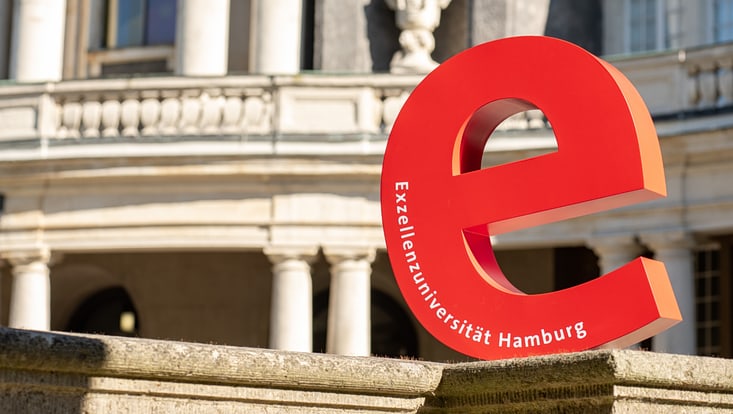New Online PortalCoronavirus Research at Universität Hamburg at a Glance
4 May 2021, by Anna Priebe

Photo: UHH/Wohlfahrt
Currently 38 projects in all subject areas: The new range of online projects covers the entire spectrum of coronavirus research at Universität Hamburg. All are welcome to inform themselves about the projects, their results, and promising ideas. Below we introduce 3 examples.
European survey on different aspects of the coronavirus pandemic and its consequences
The evaluation of current coronavirus measures, vaccination acceptance, or satisfaction with work or the government—the citizenry’s opinions on various aspects of the pandemic have repeatedly changed in the last year. The European COvid Survey (ECOS) conducted by the Hamburg Center for Health Economics (HCHE) provides a detailed look at the concerns and expectations of Europeans. The representative study conducted jointly with 3 other universities has surveyed 7,000 people in 7 European countries every 2 months since April 2020. Are they complying with political decisions such as the contact restrictions? What are their financial and economic concerns? The survey, with roughly 100 questions, covers changes throughout the highly dynamic course of the coronavirus pandemic. The findings will be published in journals and made available to the public. For example, members of the public can find current numbers at the HCHE Corona Dashboard. Both the HCHE Research Results Live and HCHE Research Seminar series also offer an opportunity for knowledge exchange.
Coronavirus in daily life: the “coronarchiv” is now also available to Spanish and Portuguese-speaking users
The coronarchiv, a public history project, was launched in March 2020 for German and English-speaking users. It provides members of the public with a forum to report on and document their everyday experiences throughout the pandemic. This is an opportunity that the team under Dr. Gilberto Rescher from the Institute of Romance Languages and Literature is now also offering to people from Latin America. “Due to the especially serious course of the pandemic there, they are strongly affected by everyday changes,” says Rescher. In pictures, short texts, videos, and other media, Spanish and Portuguese speakers from all over the world can take part in the project. “We are making it possible to compare the everyday experiences of the pandemic,” explains the research associate in the field of Latin American studies. For example, recent history may have exposed some people in these societies to more unpredictable situations or crises than the people in Germany. “People in Latin America are to some extent used to developing everyday strategies despite problems and suffering,” says Rescher. In the upcoming projects, he explains, a global perspective on the basis of the contributions to the various versions of the coronarchiv can be used to study the theoretical understanding of social processes in the coronavirus pandemic and their consequences.
Can agents that purposefully set off mutations prevent the proliferation of the corona viruses?
While there are now several different vaccines against the corona virus, the development of anti-viral drugs are also being studied. An important approach to treatment is preventing the proliferation of the virus in the body. But how does the SARS-CoV-2 virus actually proliferate and how can it be stopped? Prof. Dr. Chris Meier and Dr. Johanna Hüchting from the research area of organic chemistry at Universität Hamburg are both researching the topic. “For us, the mutations that keep arising during the proliferation process in the cells is especially interesting,” says Huchting. The researchers believe that an accelerated mutation process could render the virus harmless. “We are studying agents that lead to these kind of mutations,” says Meier. For one study conducted with a research group from the French Aix-Marseille University, sample substances were created and subsequently evaluated. “We found out that SARS-CoV-2 did, in fact, proliferate less thanks to the accelerated mutations and was essentially stopped,” explains the chemistry expert. The most promising anti-viral agent, which was derived from the well-known flu medication Favipiravir (brand name: Avigan), now needs to undergo further study.
New Transfer Agency
The coronavirus portfolio is one of the first projects of the new Transfer Agency, which was founded on 1 January 2021. The agency will coordinate transfer activities at Universität Hamburg—University of Excellence. It is the first port of call for staff and the public. Intensifying exchange with society and making transfer opportunities and research findings visible and accessible are among the main goals of a concept that led to the University’s success in the Excellence Strategy of the Federal and State Governments.


